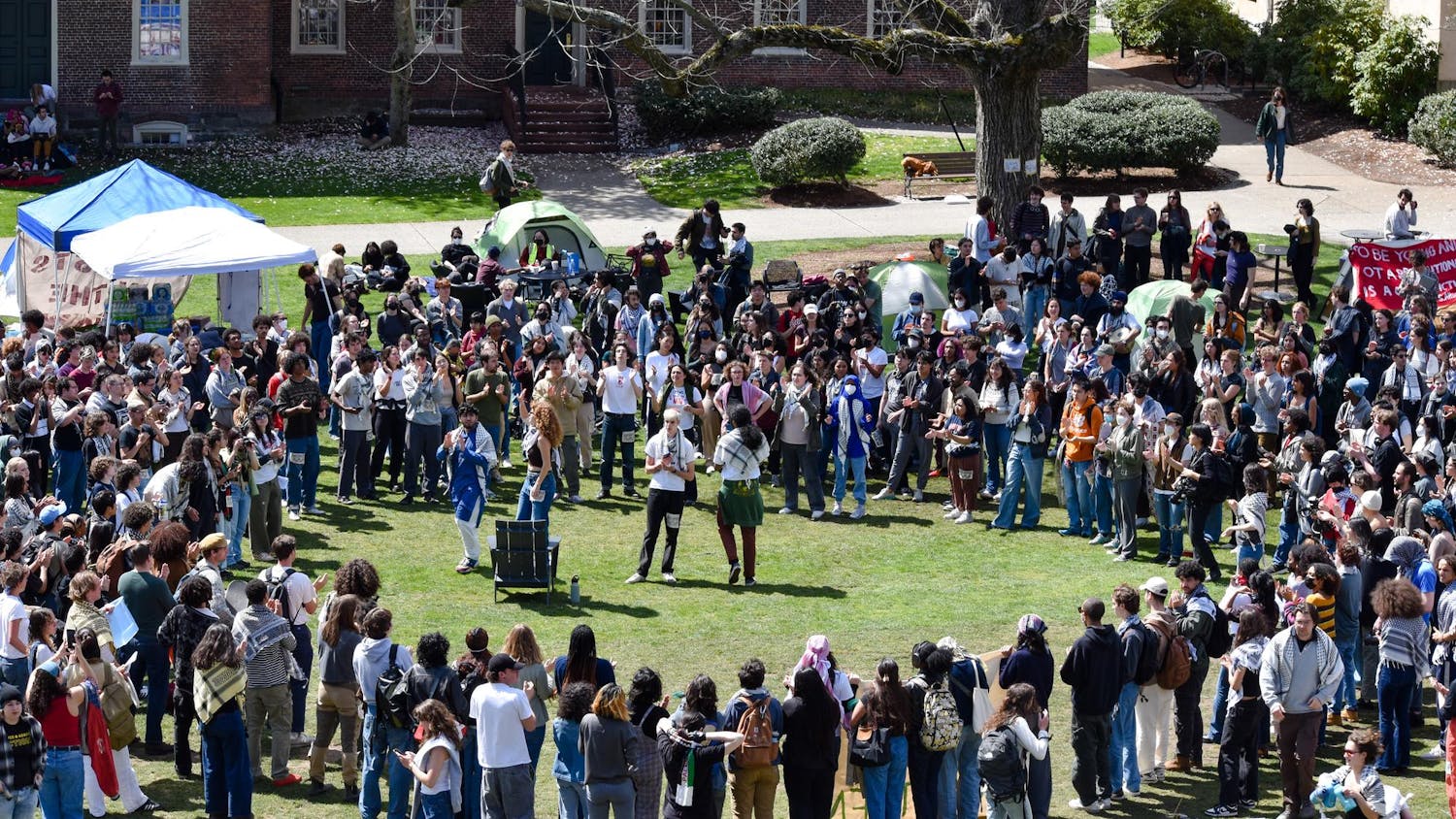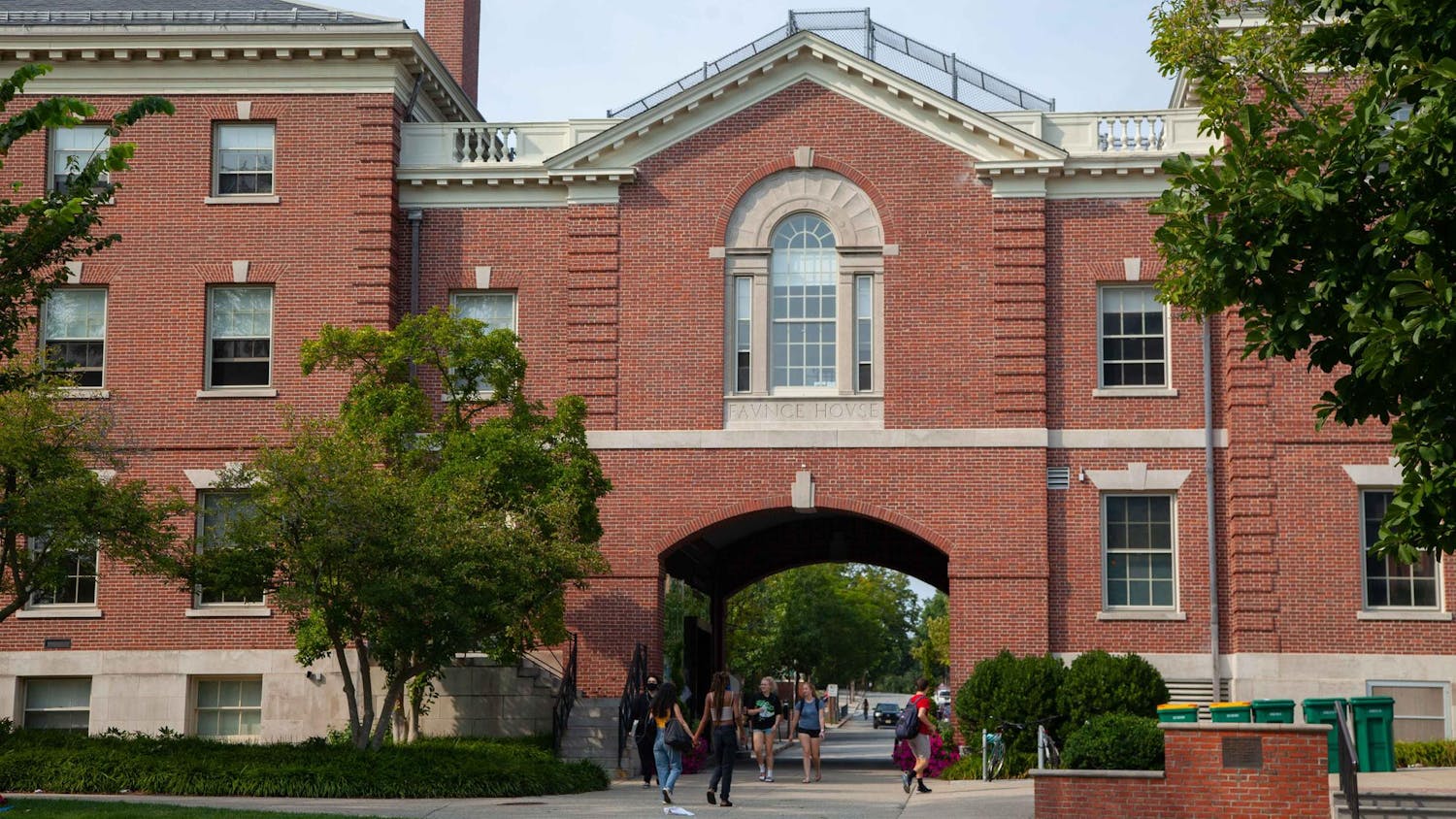Provost David Kertzer '69 P'95 P'98 will step down from his office at the end of this school year, President Ruth Simmons announced in an e-mail to faculty and staff Friday morning.
When Kertzer accepted Simmons' offer to serve as the University's chief academic officer in July of 2006, she said he accepted for a five-year term, which ends this year.
"It was certainly my intention that after my term as provost, I would go back to my teaching and research," Kertzer said.
Though Kertzer was able to publish one book while serving as provost in 2008 about an illiterate Italian woman, he plans to take a one-year sabbatical next year to conduct research in Italy. He said he is already overdue to his publisher for the manuscript of his next book, which is about the relationship between Pope Pius XI and Benito Mussolini.
"I admire the people who devote longer stretches of time to this kind of administrative work, but there comes a point when it gets difficult to return to their scholarly work if they are away from it for too long," Kertzer said. "I love my scholarly work and I wouldn't want to give that up."
As the University's academic head, Kertzer has been involved with several projects, ranging from new building projects to the continuous strengthening of financial aid.
"I can't take full credit for anything," Kertzer said. "But I think we've directed the University through an economic crisis without the quality of the University suffering."
Kertzer said he hopes to tie up loose ends the rest of this year — picking a founding dean for the engineering school and setting a new center for slavery and justice in motion.
Another of Kertzer's endeavors stems from the New England Association of Schools and Colleges report on the University released in 2009, which spurred what Simmons called an "intense and challenging" discussion led by Kertzer's ad hoc Committee to Review Tenure and Faculty Development Policies.
"In some ways, there's nothing more important for the University than the tenure issue," Kertzer said, when asked how his departure would shape the discussion among faculty and administrators. He added that any changes to the tenure process would ultimately need to be approved by the Corporation, Brown's highest governing body, not by the provost.
"I think I've devoted enough time to the tenure issue, and I'll let someone else worry about it," he said. "I don't think it would be particularly appropriate for a former provost to be involved in that kind of way."
After his sabbatical, Kertzer, a professor of anthropology and Italian studies, said he will return to Brown to teach.
He said he "reminded" Simmons around March that this year would be his last because it seemed like an appropriate time for her to launch a search for his successor.
"It didn't surprise me," Simmons told The Herald. "When I asked him to be provost, he had a number of other projects in the works."
Simmons said a search committee will soon be formed with the goal of confirming a replacement by June 30, when Kertzer's term runs out. Members have not yet been named.
She said a roughly five-year term is typical for provosts to allow enough time make a significant impact and also to justify changing one's lifestyle. She said she hopes Kertzer's successor will agree to a term of at least five years.
Simmons also said provosts, who oversee a university's academic functions, are commonly former department chairs. Kertzer was the chair of Brown's anthropology department, though Simmons said the search would not be confined to Brown.
Kertzer said he will not be involved in the search process, and though he will be available for advice, would "have some distance" from his new successor next year while he is in Italy.




